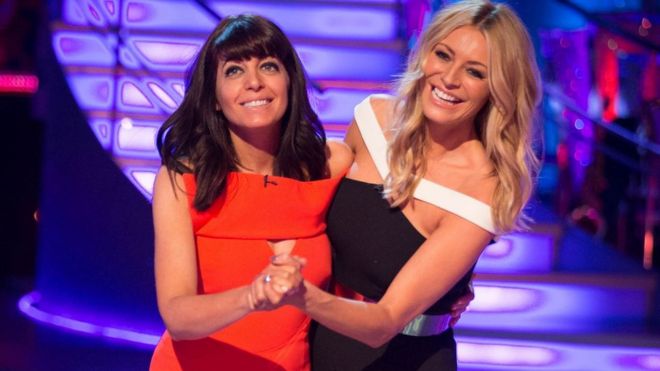
The BBC argues competition on a Saturday night has been part of the TV landscape for generations and drives up quality
The BBC is expected to argue the case for popular shows like Strictly Come Dancing and Sherlock as it responds to a government green paper on its future.
The broadcaster will argue the public “wants and expects the BBC to deliver entertainment,” amid suggestions it is too focused on ratings.
It will also make a case for the popular music stations Radio 1 and 2, saying they play a greater variety of music than commercial rivals.
The response is due at 10:00 BST.
It comes as the government closes a public consultation into the renewal of the BBC’s charter, which raised several key questions:
- What is the overall purpose of the BBC?
- What services and content should it provide?
- How should the BBC be funded?
- How should the BBC be governed and regulated?
When the green paper was launched in July, culture secretary John Whittingdale said hard questions” would be asked about the size and ambition of the BBC and said a decision had to be made on whether the corporation should try to do “all things” or become more “precise”.
More than 80,000 people have responded, he told the Conservative Party Conference earlier this week.
The BBC’s own response is expected to be more than 100 pages long, and will include plans for a radical programme of reform; including greater efficiency and a drive to increase profits from the BBC’s commercial arm, BBC Worldwide.
It will counter the suggestion that the BBC should pull back from “crowd-pleasing” shows, saying: “Competition on a Saturday night has been part of the TV landscape for generations and drives up quality – with the viewer being the winner”.
The document will also show that 49% of Radio 1’s playlist is comprised of artists without a top 10 single, while for Capital FM it is just 12%; and that 27% of BBC One’s primetime output is factual, compared to 12% on ITV.
The corporation is also expected to ask for the government to wait 11 years, rather than 10, before debating the BBC’s charter again – thus removing discussions from the election cycle.
 Q FM Africa's Modern Radio
Q FM Africa's Modern Radio